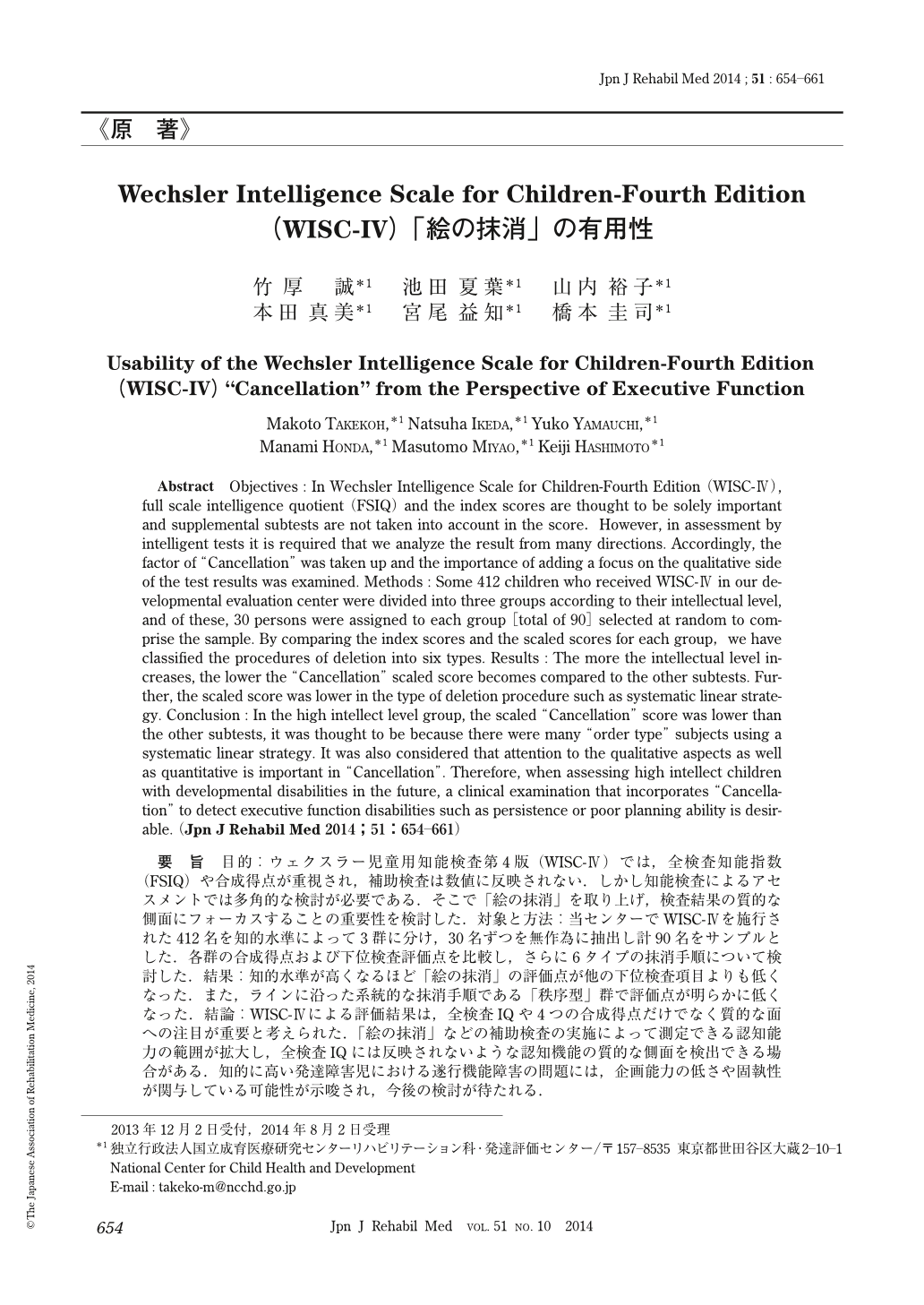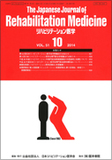Japanese
English
- 販売していません
- Abstract 文献概要
- 1ページ目 Look Inside
- 参考文献 Reference
要旨 目的:ウェクスラー児童用知能検査第4版(WISC-Ⅳ)では,全検査知能指数(FSIQ)や合成得点が重視され,補助検査は数値に反映されない.しかし知能検査によるアセスメントでは多角的な検討が必要である.そこで「絵の抹消」を取り上げ,検査結果の質的な側面にフォーカスすることの重要性を検討した.対象と方法:当センターでWISC-Ⅳを施行された412名を知的水準によって3群に分け,30名ずつを無作為に抽出し計90名をサンプルとした.各群の合成得点および下位検査評価点を比較し,さらに6タイプの抹消手順について検討した.結果:知的水準が高くなるほど「絵の抹消」の評価点が他の下位検査項目よりも低くなった.また,ラインに沿った系統的な抹消手順である「秩序型」群で評価点が明らかに低くなった.結論:WISC-Ⅳによる評価結果は,全検査IQや4つの合成得点だけでなく質的な面への注目が重要と考えられた.「絵の抹消」などの補助検査の実施によって測定できる認知能力の範囲が拡大し,全検査IQには反映されないような認知機能の質的な側面を検出できる場合がある.知的に高い発達障害児における遂行機能障害の問題には,企画能力の低さや固執性が関与している可能性が示唆され,今後の検討が待たれる.
Abstract Objectives : In Wechsler Intelligence Scale for Children-Fourth Edition (WISC-Ⅳ), full scale intelligence quotient (FSIQ) and the index scores are thought to be solely important and supplemental subtests are not taken into account in the score.However, in assessment by intelligent tests it is required that we analyze the result from many directions. Accordingly, the factor of “Cancellation” was taken up and the importance of adding a focus on the qualitative side of the test results was examined. Methods : Some 412 children who received WISC-Ⅳ in our developmental evaluation center were divided into three groups according to their intellectual level, and of these, 30 persons were assigned to each group [total of 90] selected at random to comprise the sample. By comparing the index scores and the scaled scores for each group,we have classified the procedures of deletion into six types. Results : The more the intellectual level increases, the lower the “Cancellation” scaled score becomes compared to the other subtests. Further, the scaled score was lower in the type of deletion procedure such as systematic linear strategy. Conclusion : In the high intellect level group, the scaled “Cancellation” score was lower than the other subtests, it was thought to be because there were many “order type” subjects using a systematic linear strategy. It was also considered that attention to the qualitative aspects as well as quantitative is important in “Cancellation”. Therefore, when assessing high intellect children with developmental disabilities in the future, a clinical examination that incorporates “Cancellation” to detect executive function disabilities such as persistence or poor planning ability is desirable.

Copyright © 2014, The Japanese Association of Rehabilitation Medicine. All rights reserved.


